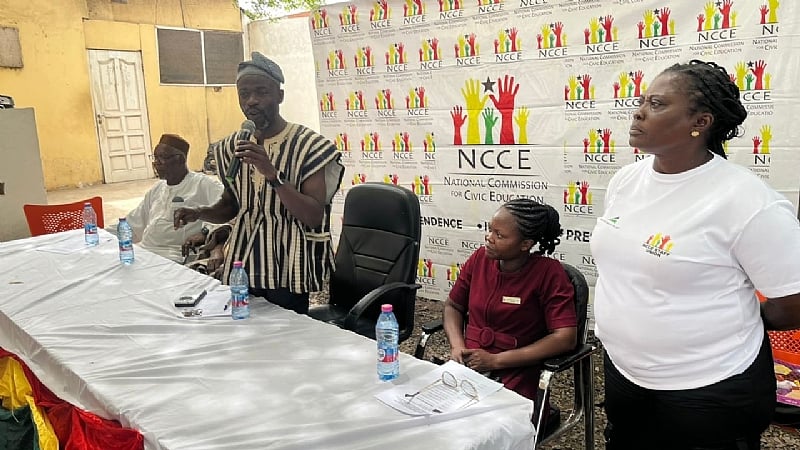The Ayawaso North Municipal Assembly, through its Presiding Member, Mr. Benjamin Anabilla, has publicly reaffirmed its dedication to community engagement and public health education. This commitment was underscored during the Annual African Vaccination and Child Health Promotion Week held in Accra. Mr. Anabilla emphasized the importance of active citizen participation in local governance, encouraging residents to voice their concerns and lodge complaints directly with the Assembly, assuring them of an open-door policy. He commended the National Commission for Civic Education (NCCE) for their dual commitment to civic education and child health, recognizing the vital role town hall meetings play in connecting communities with essential information and services. This proactive approach to governance underscores the Assembly’s recognition of the crucial role communities play in achieving national health objectives and fostering overall development.
The theme of community participation as a cornerstone of successful health initiatives was further amplified by Madam Eunice Nkrumah, the Municipal Director of the NCCE. She stressed the significance of community involvement in promoting health, emphasizing that maternal health and routine childhood immunizations are fundamental to national development, not just individual well-being. Her statement highlighted the interconnectedness of individual health and national progress, arguing that a healthy populace forms the bedrock of a thriving nation. Madam Nkrumah’s call to action urged collective responsibility for ensuring timely access to healthcare services for children, underscoring the critical role community members play in supporting families and safeguarding the health of future generations.
The Annual African Vaccination and Child Health Promotion Week provided a platform for addressing key issues related to public health and access to essential services. Mr. Seth Amponsah, the Director of the National Identification Authority (NIA) in the Ayawaso Municipality, used the opportunity to inform the public about the Ghana Card, a crucial piece of national identification. He clarified the fee structure associated with the card, emphasizing that while initial registration is free, subsequent updates, replacements, or corrections incur a fee. His presence highlighted the interconnectedness of various governmental services and the importance of clear communication regarding access and procedures.
Mr. Amponsah also shed light on a significant issue of fraudulent practices related to birth certificate documentation. He revealed that some individuals attempt to circumvent proper procedures by submitting birth certificates from non-existent hospitals. This revelation underscores the importance of robust verification systems and public awareness campaigns to combat such fraudulent activities. Accurate birth registration is fundamental for access to essential services, including healthcare and education, and fraudulent practices undermine the integrity of these systems and potentially deny individuals access to essential rights. Mr. Amponsah’s warning serves as a call for heightened vigilance and reinforces the importance of accurate record-keeping for effective governance and service delivery.
The Assembly’s commitment to public education, exemplified by the forum, extends beyond health-related issues to encompass crucial aspects of civic responsibility and access to essential documentation. By facilitating dialogue and providing a platform for various government agencies to interact directly with the public, the Ayawaso North Municipal Assembly demonstrates a proactive approach to governance that prioritizes transparency and community engagement. This multifaceted approach emphasizes the interconnectedness of various sectors, including health, identification, and civic education, in building a stronger and more informed community.
The collective efforts of the Assembly, the NCCE, and the NIA, demonstrated during the Annual African Vaccination and Child Health Promotion Week, underscore a collaborative approach to community development. This collaborative spirit, combined with a focus on public education and accessibility, strengthens the foundation for a healthier and more informed citizenry. By encouraging active participation and providing access to essential information and services, these institutions contribute to the overall well-being of the community and contribute to national development goals. The emphasis on preventative healthcare, accurate documentation, and civic responsibility underscores the importance of a comprehensive approach to community building, fostering a more empowered and informed populace equipped to participate effectively in shaping their future.


